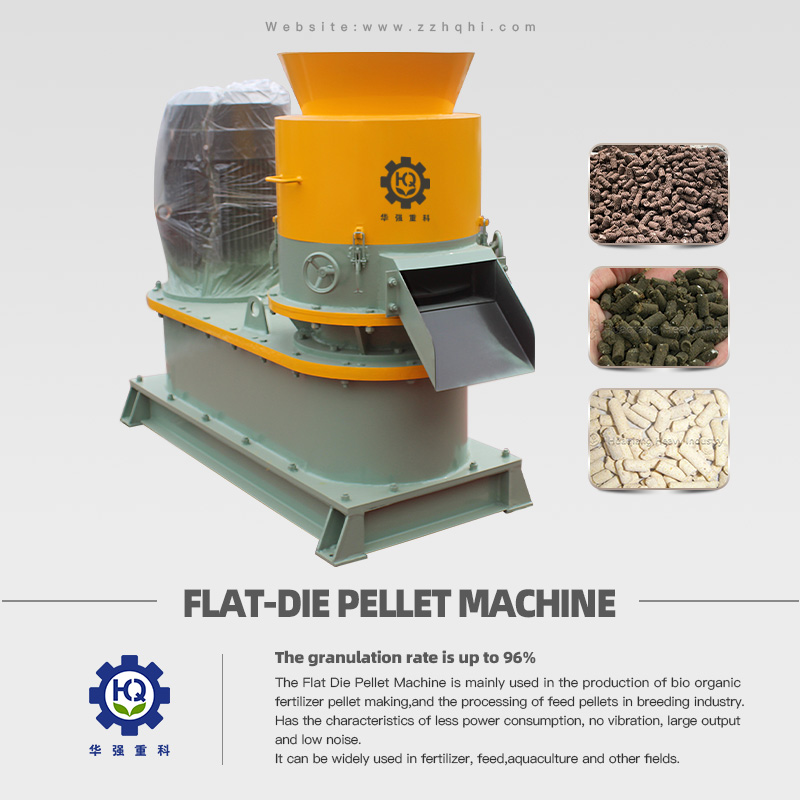The flat die granulator offers significant advantages, with the larger pressure wheel being a key feature. This larger pressure wheel also increases the bearing’s ability to withstand pressure, making the equipment more stable and reliable, and reducing failures caused by pressure. Furthermore, the larger pressure wheel prevents heat generated by extrusion friction from being transmitted to the bearing chamber, ensuring the bearing operates at a low temperature and preventing lubricant leakage, thus extending bearing life. Furthermore, the larger pressure wheel can be repaired two to three times, reducing maintenance costs and increasing project profitability, offering significant advantages over similar equipment.
The flat die granulator is suitable for a wide range of materials. In agriculture, crop straw, such as corn stalks, wheat straw, and rice husks, can be processed into biomass pellet fuel or organic fertilizer. In the domestic sector, some household waste, after sorting and processing, can also be used for pelletizing, achieving resource recycling. In industry, the flat die granulator can easily handle materials such as biofertilizer, coal, carbon black, kaolin, and stone powder, demonstrating its strong material adaptability.

Flat die granulators also play a positive role in environmental protection. On the one hand, they can process large amounts of agricultural and forestry waste, reducing environmental pollution and enabling resource recycling. On the other hand, by converting degradable materials into biodegradable plastic pellets, they provide a new approach to addressing white pollution, promoting the development of environmentally friendly materials and facilitating the achievement of sustainable development goals.